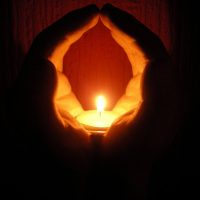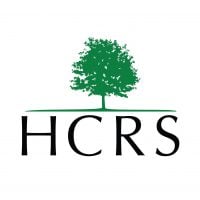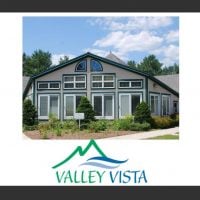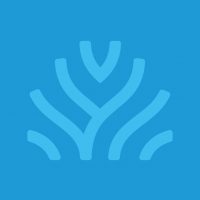Turning Pont Center of Rutland
Drug Rehab Center in Rutland, Vermont
The Turning Point Center of Rutland, Vermont, is a non-profit organization offering a wide range of vital services, including counseling, referral, and support for individuals and families affected by addiction and substance abuse.
About Turning Pont Center of Rutland in Vermont
The Turning Point Center of Rutland is a non-profit organization dedicated to helping individuals and families impacted by addiction and substance abuse. Established in 1992, the center provides a wealth of vital services to the community, including peer recovery support, education, and advocacy. They partner with a number of agencies and organizations to ensure that their clients receive comprehensive and compassionate care. Turning Point employs licensed and certified counselors, and all services are clinically and medically based for optimal safety and effectiveness.
At Turning Point Center, a wide range of recovery services are available, including group and individual counseling, referral services, support for families and loved ones, HIV/AIDS education, and specialized programs for adolescents. In addition, they offer relapse prevention, anger management, trauma-informed care, nutrition and health services, and specialized services for veterans. All services provided by Turning Point are in compliance with the Vermont Department of Health and Human Services, and the Center is accredited by the Vermont Department of Mental Health. The Turning Point Center truly provides a holistic and comprehensive experience for those looking to change their lives for the better.
Genders
Ages
Modality
Additional
Conditions and Issues Treated
A combination of treatments is often needed to treat drug abuse. Some addictions can be treated with counseling and support groups. In other cases, drug abuse can lead to a medical problem and require medical treatment. Treatment for drug addiction typically combines counseling and psychotherapy with medication and behavioral therapies.
A combination of treatments is often needed to treat drug abuse issues effectively. In the case of drug abuse, there is no easy answer or one-size-fits-all cure.
Opioid addiction has become a significant health problem in the United States. In 2015, there were 91 opioid overdose-related deaths per day, with a substantial increase in mortality rate in 2014.
When opioid addiction has reached a point where a person’s life becomes unmanageable, treatment options are available to help them get sober. Treatment that includes medical care with medications and counseling can help a user transition into sobriety.
Levels of Care Offered
This center offers a variety of custom treatment tailored to individual recovery. Currently available are Aftercare Support, Drug Rehab, Outpatient, with additional therapies available as listed below.
Outpatient treatment is often used for drug addicts in drug rehab. Outpatient treatment consists of counseling and therapy sessions. This form of treatment is also called ‘day-treatment’. The outpatient treatment process begins with the addict’s initial detox period, lasting about ten days.
Outpatient treatment is used for those who are at moderate risk for ‘slipping back’ into the addiction, for those who:
- Are not currently experiencing any side effects from withdrawal and can handle social pressure
- Can handle stressors that might trigger relapse
- Have a stable living environment or have moved out of their previous environment, which was not conducive to being sober
- Have a support system that allows them to go to a facility a few times a week while still keeping their current responsibilities
- Have no legal obligations, being either on parole or probation, that require them to seek treatment at a mandatory facility
- Are not currently experiencing any side effects from withdrawal and can handle social pressure
- Have a stable living environment or have moved out of their previous environment, which was not conducive to being sober
Completing a drug or alcohol rehab program is only the first step. Then comes aftercare support. These services include sober living accommodations, career counseling, and AA/NA programs for those struggling with sobriety or who want help maintaining it after initial rehab at an addiction facility.
They can last up to a year or more depending on what’s needed most urgently after the earlier stages are completed.
Therapies & Programs
Family therapy is beneficial for people who are in addiction treatment services because it offers addicts the opportunity to work with their family members to better understand what led them to make choices that contributed to their addiction.
This type of therapy helps family members reach a deeper understanding of how they can best support their loved one during recovery. It also helps the addict better understand their own motivations and triggers that led them to turn to substance abuse.
Family therapy can help addicts in the following ways:
- Assists family members in processing difficult feelings so they don’t blame or resent recovering addicts
- Assists family members in understanding how addiction has impacted the addict and everyone who is involved with them
- Allows the addict to take responsibility for their actions, while encouraging improved communication skills
- Helps family members understand how to best support an individual in recovery so addicts don’t relapse again.
Group therapy can help build a stronger support system and give addicts in Rutland, VT insight into their addiction that they gain through shared conversations. Group therapy occurs in a controlled group environment, exclusive of one on one meetings. This makes it safer for patients to feel comfortable sharing the struggles they’re going through and gaining perspective.
Life Skills Services assist addicts in their recovery by teaching them healthy coping mechanisms that will aid them in becoming sober, focussing on helping people enter into, and maintaining long-term sobriety. Drug Treatment Centers provide Life Skills Services at varying levels of intensity, specific to the needs and requirements of each patient.
The benefits of Life Skills Services offered at Turning Pont Center of Rutland:
- Restores hope and empowerment — Helps addicts believe that recovery is possible and instills a new confidence in their ability to achieve a positive, drug-free future
- Enhances family involvement — Encourages families to get involved in the recovery process and supports their understanding and encouragement of healthy behavior.
- Increases patient’s compliance — Helps patients take responsibility for and ownership of their recovery and encourages continued progress
- Reduces relapse rates — Encourages long-term abstinence and emphasizes the importance of establishing sober support systems.
Patient Experience
Creative Arts
Creative arts therapy, known as expressive therapy, may be used as a means of treatment. Acting and music are among the various forms used to express oneself where written words would fail through poetry or song. The goal is to find a balance by integrating thoughts and feelings to improve the mental state of patients in Rutland, Vermont.Fitness Therapy
Fitness therapy allows people to heal while rebuilding their bodies. If they combine it with nutritional therapy, they will feel better and make better choices right from the start of rehab. These activities provide a solid connection between your mind and body, teaching you to create healthy life habits without any addiction.
There are two types of fitness therapy: psychotherapy plus exercise or just exercise plus nutrition education. It is commonly used in Turning Pont Center of Rutland.
Additional Details
Specifics, location, and helpful extra information.
Rutland, Vermont 5701 Phone Number(802) 773-6010 Meta DetailsUpdated November 25, 2023
Staff Verified
Turning Pont Center of Rutland Patient Reviews
There are no reviews yet. Be the first one to write one.
Rutland, Vermont Addiction Information
Vermont has the highest rate of illicit drug abuse in the nation. A third of all Vermonters who are addicted to drugs admit to first having abused prescription drugs. The largest drug threat in Vermont is opioids. Fentanyl, dubbed the most dangerous drug in America, is responsible for more than half of all opioid-related deaths in Vermont. A third of all residents aged 12 and older who are addicted to drugs admit to first having abused prescription drugs. In many overdose cases, cocaine is also a contributing factor.
In Rutland, Vermont, about 1,600 people are dependent on cocaine. Cocaine is a stimulant that can cause a person to feel euphoric and energetic and increase a person's heart rate and blood pressure. The most commonly abused drugs in the Rutland area are heroin and prescription painkillers. The good news is that there are several excellent addiction treatment facilities in Rutland.
Treatment in Nearby Cities
- Vergennes, VT (40.9 mi.)
- Rutland, VT (0.7 mi.)
- Colchester, VT (65.2 mi.)
- Barre, VT (47.3 mi.)
- Hartford, VT (31.1 mi.)
Centers near Turning Pont Center of Rutland
The facility name, logo and brand are the property and registered trademarks of Turning Pont Center of Rutland, and are being used for identification and informational purposes only. Use of these names, logos and brands shall not imply endorsement. RehabNow.org is not affiliated with or sponsored by Turning Pont Center of Rutland.








